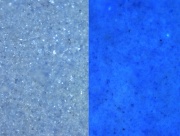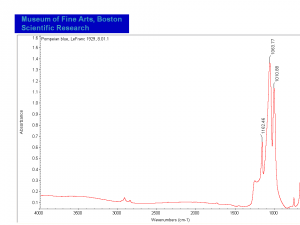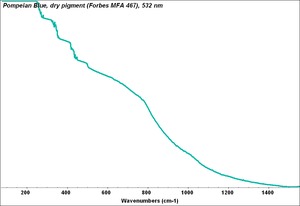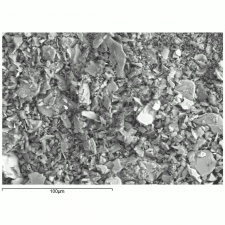Difference between revisions of "Pompeian blue"
Jump to navigation
Jump to search
| Line 1: | Line 1: | ||
| − | [[File:bleupompeii C100x.jpg|thumb|Bleu pompeii (Forbes 473)]] | + | [[File:bleupompeii C100x.jpg|thumb|Bleu pompeii (Forbes 473) at 100x (visible light left; UV light right)]] |
== Description == | == Description == | ||
| Line 14: | Line 14: | ||
[[media:download_file_504.pdf|Characteristics of Common Blue Pigments]] | [[media:download_file_504.pdf|Characteristics of Common Blue Pigments]] | ||
| − | + | ==Resources and Citations== | |
| − | |||
| − | == | ||
* R. J. Gettens, G.L. Stout, ''Painting Materials, A Short Encyclopaedia'', Dover Publications, New York, 1966 | * R. J. Gettens, G.L. Stout, ''Painting Materials, A Short Encyclopaedia'', Dover Publications, New York, 1966 | ||
Revision as of 12:10, 27 September 2022
Description
A modern blue pigment that is chemically similar to Egyptian blue. Pompeian blue tends to be purer and finer than the ancient pigment. The name Pompeian blue has also been used on commercial products that contain a dye of the same hue.
Synonyms and Related Terms
azul de Pompeia (Port.); Pompeiian blue
Comparisons
Characteristics of Common Blue Pigments
Resources and Citations
- R. J. Gettens, G.L. Stout, Painting Materials, A Short Encyclopaedia, Dover Publications, New York, 1966
- Ralph Mayer, A Dictionary of Art Terms and Techniques, Harper and Row Publishers, New York, 1969 (also 1945 printing)
- Monona Rossol, The Artist's Complete Health and Safety Guide, Allworth Press, New York, 1994




